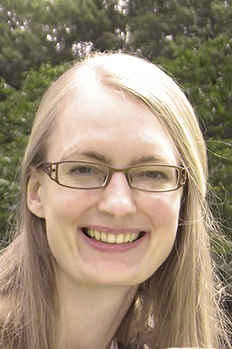Volha Bartash
Research Fellow (10/2015 - 03/2016)
Survival as a Daily routine. Roma in the German-Occupied Belarusian-Lithuanian Border Region 1941-1944
 The interviewing of Romani families opens a completely new perspective on the life of people under occupation. For them, survival was an everyday routine consisting of three essential “how and where” questions – where to hide, how to provide for their families, and how to keep on the move. Focusing on the survival experiences of Roma, the book project addresses the on-going debates on the difference between the plight of nomadic and sedentary Romani communities, the role of local Nazi collaborators in the persecutions, and the Romani Resistance. A methodological originality of the study is that it combines ethnographic and historical approaches. In order to gather data for the project, Volha Bartash carried out interviews in the Romani communities in Belarus and Lithuania and worked in the archival and oral history collections of the United States Holocaust Memorial Museum, Washington DC. During her research stay at the VWI, she will analyse the collected materials and start working on a book manuscript.
The interviewing of Romani families opens a completely new perspective on the life of people under occupation. For them, survival was an everyday routine consisting of three essential “how and where” questions – where to hide, how to provide for their families, and how to keep on the move. Focusing on the survival experiences of Roma, the book project addresses the on-going debates on the difference between the plight of nomadic and sedentary Romani communities, the role of local Nazi collaborators in the persecutions, and the Romani Resistance. A methodological originality of the study is that it combines ethnographic and historical approaches. In order to gather data for the project, Volha Bartash carried out interviews in the Romani communities in Belarus and Lithuania and worked in the archival and oral history collections of the United States Holocaust Memorial Museum, Washington DC. During her research stay at the VWI, she will analyse the collected materials and start working on a book manuscript.
Volha Bartash studied History and Ethnology at the Belarusian State University in Minsk and earned her PhD from the National Academy of Sciences of Belarus. Her current research focuses on the Holocaust memories and identities of Roma in Belarus and Lithuania. Volha is the recipient of several academic honors including the Marian Madison Gypsy Lore Society Young Scholar's Prize in Romani studies and the Jeff and Toby Herr Fellowship at the US Holocaust Memorial Museum.






